

[MMORPG Game Development with C++ and Unreal Series] Part 4: Game Server
This course covers core computer science knowledge such as networking, multi-threading, and operating systems, and teaches MMORPG technology by building a game server from the ground up. It provides a comprehensive overview of the knowledge that a new server programmer should know, building a foundation that allows them to adapt to any project without feeling overwhelmed.
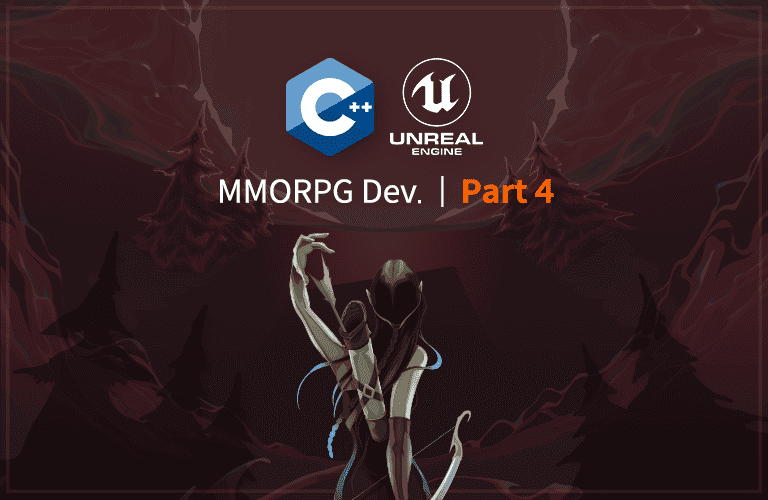
This course is prepared for Intermediate Learners.
What you will learn!
Online game development
C++ Windows IOCP Server
All the skills needed to develop MMORPGs,
Step By Step with C++ & Unreal! 🕹️
Developing an MMORPG from Basic to Ultimate 🎮
![[MMORPG Game Development Series with C++ and Unreal Engine] Part 4: Game Server [C++과 언리얼 엔진으로 만드는 MMORPG 게임 개발 시리즈] Part4: 게임 서버](https://cdn.inflearn.com/public/files/courses/326162/1e7c3880-f674-413d-9d2c-f2b25668b637/326162-2.jpg)
This is a game development lecture for those who are preparing for a job as a game programmer with the goal of completing their portfolio, and those who want to challenge themselves with game development using C++ and Unreal Engine. The goal is to develop high-level 3D MMORPG games and acquire sufficient knowledge to join a game company as a new employee.
In this series, we will learn the necessary skills step by step to create a 3D MMORPG game using C++ and Unreal, based on free assets provided by Unreal. Let's take on the challenge together!
You can make something like this ✨
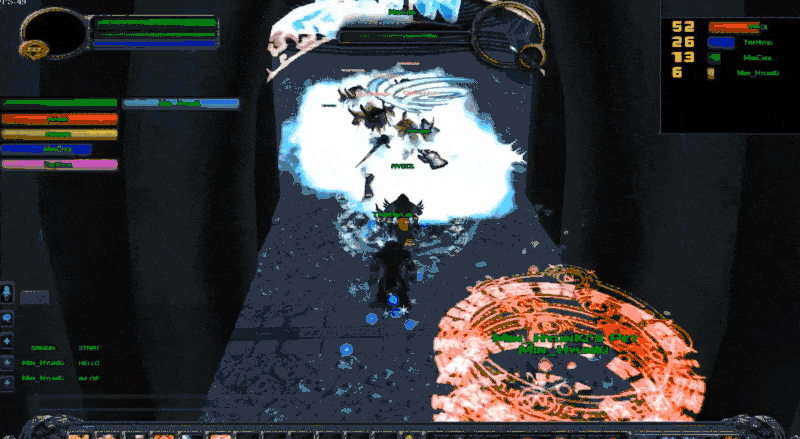 You will gain the ability to implement even a simple 3D MMORPG game. (Sample portfolio clip)
You will gain the ability to implement even a simple 3D MMORPG game. (Sample portfolio clip)
What you'll learn 📚
- Part 1: Introduction to C++ Programming
- Part 2: Game Math and DirectX12
- Part 3: Data Structures and Algorithms
- Part 4: Game Server (Windows IOCP Server) Current Lecture
- Part5: UE5 & IOCP Server Integration
Game server?
It is a program that mediates multiple players to play games together online .
It operates the MMORPG world with battles, items, quests, achievements, AI, etc.
He acts as a controller who notifies various players of information about the game world.
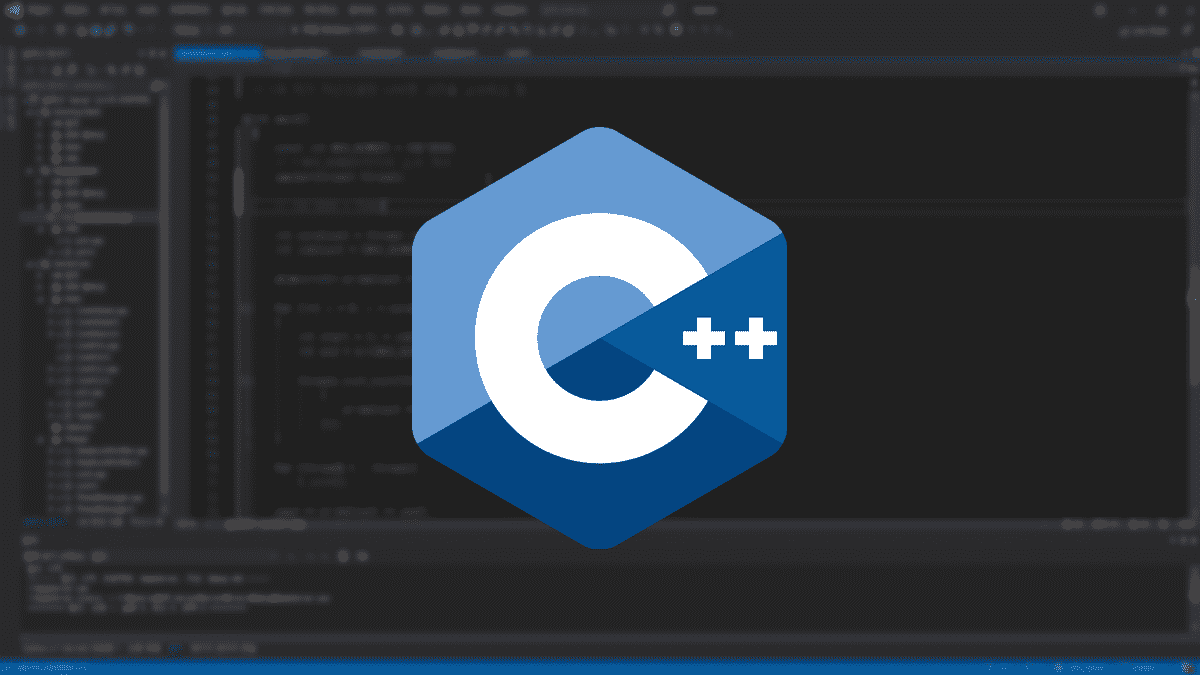
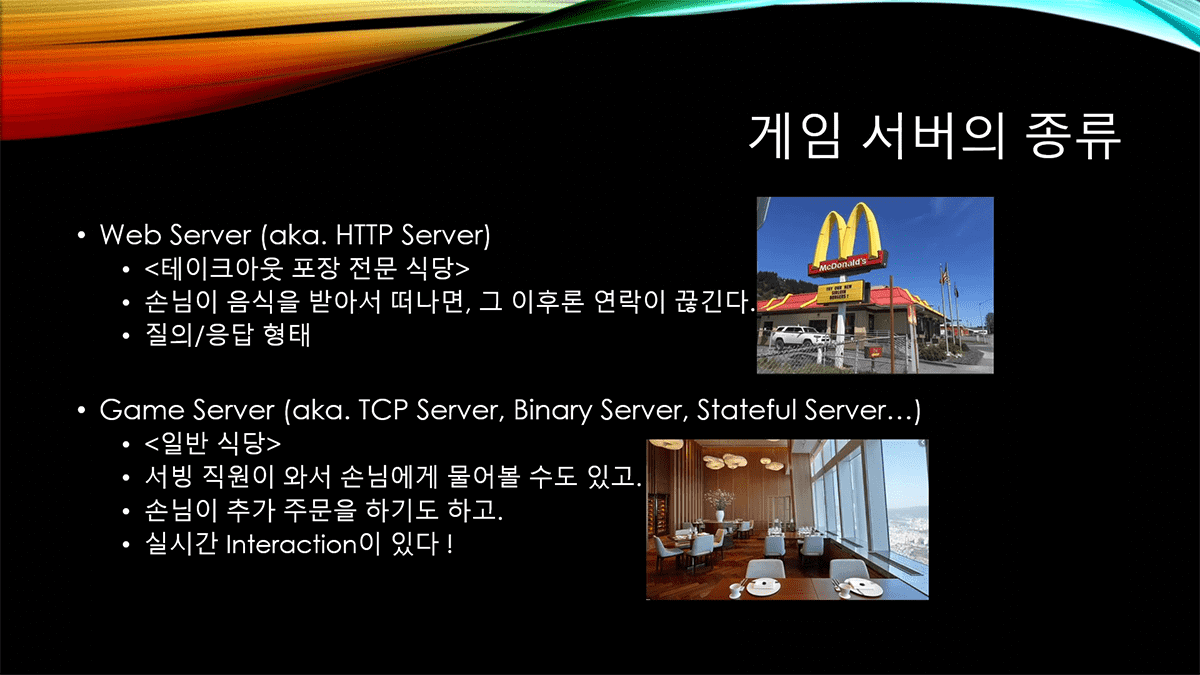
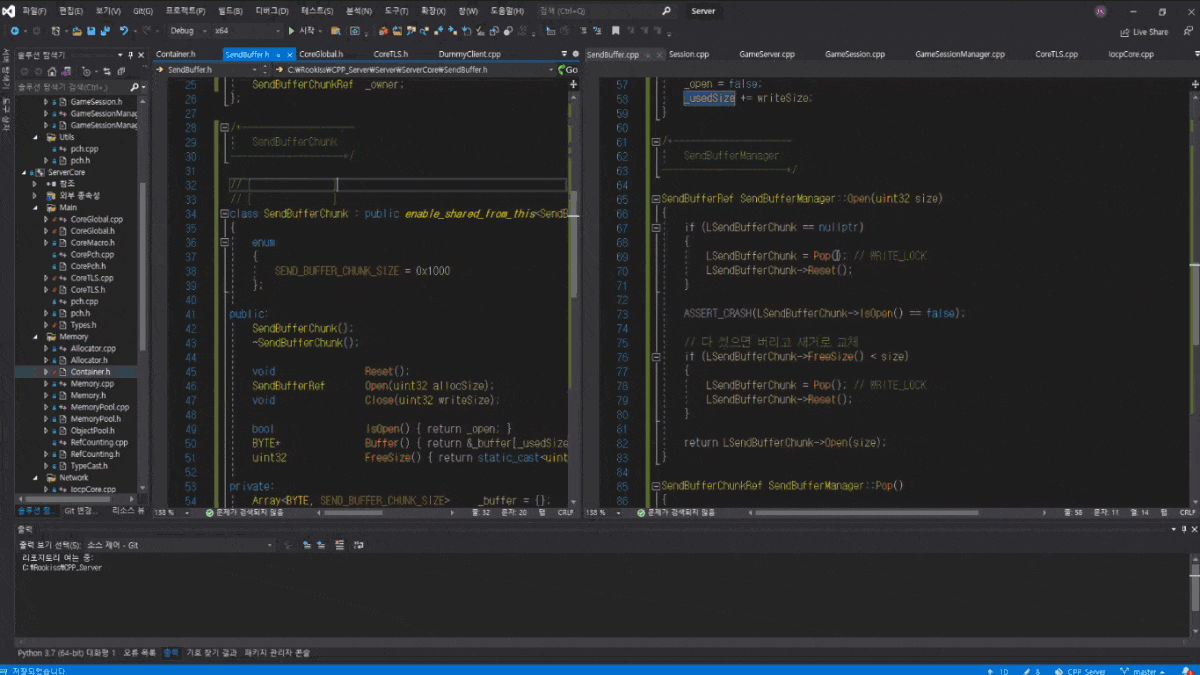
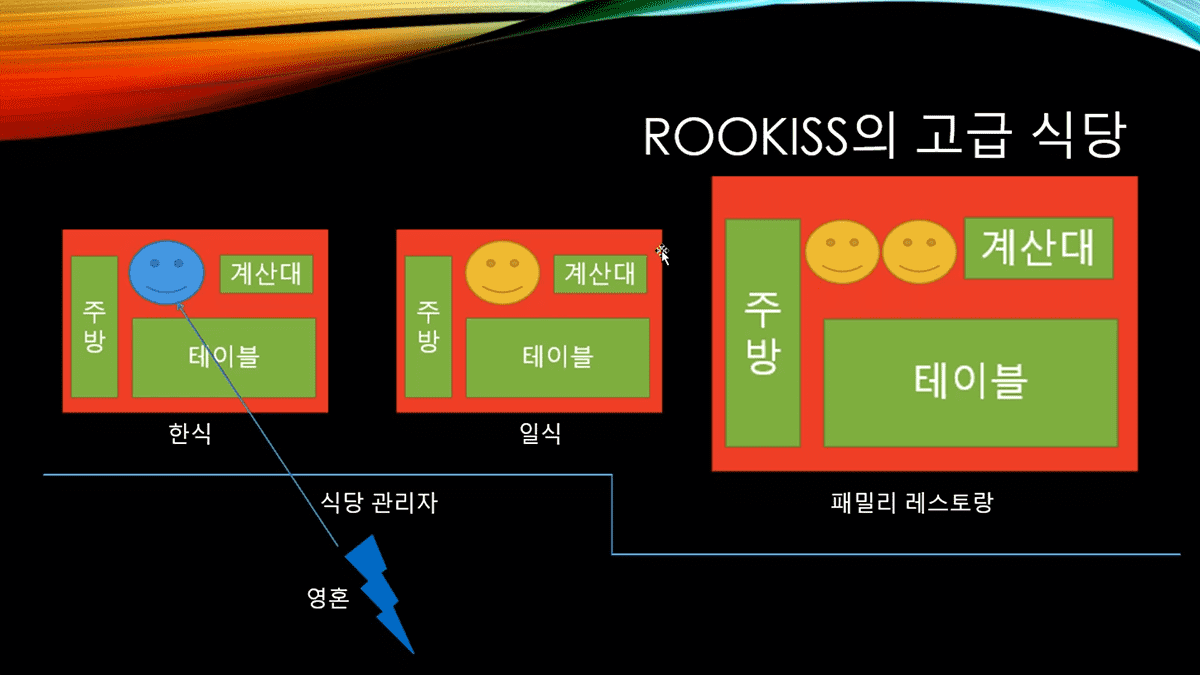
The weather is leaking!
Everyone wonders, but no one tells them.
Revealing the secrets of a server's knowledge.
Part 4 is a lecture on designing and implementing game servers, the flower of MMORPGs. Unreal Engine and Unity Engine are dividing the game client market, but there is no absolute engine for game servers, and most companies utilize their own network libraries. The requirements are very different depending on the game plan and genre, and there is also the problem of not being able to effectively utilize external engines without basic knowledge of servers.
Server programmers are the most highly paid in gaming companies, and they are a job group that develops attractive programs that control the game world. Many job seekers are applying for the server part.
However, unlike client knowledge that can be found relatively easily, it is difficult to find professional books or lectures on game servers. Why is that? In order to create and apply a game server, knowledge of various fields such as C++, multi-threading, operating system, network, and database is required, but it is very difficult to systematically organize and explain this from beginning to end, and people with such knowledge are relatively rare.
In this lecture, you will learn step by step how to build a game server from the basics that many people are curious about. If you understand all the contents covered in the lecture, you will be able to build a solid foundation that will allow you to adapt without difficulty to any project as a new server programmer.

Game Server Basics
All-in-One!
Multithreading, networking,
Operating system, Job management,
Up to DB connection

Game development
Eyes that see the forest
Play online games
Looking at
Expand your field of vision

Tailored for practical use
Learning Game Development
Adaptability to real-world situations
Can be raised
Practice-oriented structure

Preparing for a job interview
Even solid knowledge
game company
What to ask in a job interview
Acquire basic knowledge
OT 👉 Multithreaded programming 👉 Memory management 👉 Network programming 👉 Network library creation 👉 Packet serialization 👉 JobQueue 👉 Database connection
Part 4, recommended for these people!

game company
Preparing for employment
Server programmer
Job seeker

MMORPG
In game development
Anyone interested
(C++ users)

client
I have development experience, but
How the server works
Anyone who wants to know
Q&A 🙋♀️
Q. What is the lecture environment?
All series are produced assuming a Windows environment, and there is no additional explanation for macOS.
Q. Can non-majors also take the course?
We will proceed assuming that there is absolutely no player knowledge, but the difficulty level of the entire series is quite high due to the characteristics of C++ and servers. If you are completely new to programming, we recommend [ Game Development Series with C# and Unity ], which has a lower overall difficulty level.
Q. Please tell us what prompted you to start this course.
Personally, I remember having a hard time when I first started studying servers because there was no reference material.
After getting a job, I compared the actual live MMORPG code and realized many of the errors in my code that I had created through headings. I thought that if there had been a class that briefly covered the entire content of MMORPG development from the basics to the end, I would have saved time and suffered less.
I hope this class will serve as a guide for you to get started with MMORPG games.
Q. If I buy one part, do I get the other part for free?
Each part is manufactured independently and sold separately.
Q. Will I be able to get a job if I study this series?
It is impossible to know because everyone grows at different rates and many variables come into play when it comes to employment.
However, if you have an online 3D game portfolio and knowledge of game development, graphics, servers, and algorithms, your chances of getting a job will increase dramatically.
.png)
Recommended for
these people!
Who is this course right for?
Someone who is very interested in developing MMORPG games
Aspiring server programmer
A client programmer who wants to connect to a server
Need to know before starting?
Basic C++ knowledge
Hello
This is rookiss
73,203
Students
3,012
Reviews
5,298
Answers
4.9
Rating
38
Courses
학력
- Condorcet Prépa MPSI 수료 (프랑스)
- 칭화대학교 소프트웨어공학 학사 (중국)
- 고려대학교 정보보호대학원 석사 (한국)
경력
- 前 크래프톤 (테라 서버팀)
- 前 엔씨소프트 (Blade&Soul2 컨텐츠 프로그래밍팀)
관심 분야
- 리버싱 및 취약점 분석
- MMORPG 게임 개발 (C++, C#)
- 외국어 (영어, 프랑스어, 중국어, 일본어)
소개
해킹 공부를 위해 순전히 호기심으로 시작한 게임 개발인데...
시간이 흘러 어느덧 8년차 게임 개발자가 되었습니다.
"이래서 언제 게임을 만들지~?"
한숨 나오는 기초 문법부터 시작해서,
차츰 만들어가는 나만의 게임 세상.
그리고 그 세상에 접속한 다수의 플레이어를 볼 때의 뿌듯함.
공부를 할 수록, MMORPG의 매력에는 헤어나올 수가 없습니다.
제가 느낀 감동을 여러분도 느낄 수 있으면 좋겠네요.
Curriculum
All
80 lectures ∙ (41hr 41min)
Course Materials:
OT
11:55
Server OT
09:50
Preferences
26:36
Create a thread
21:13
Atomic
17:53
Lock Basics
22:18
DeadLock
24:32
SpinLock
24:34
Sleep
17:35
Event
25:34
Condition Variable
18:45
Future
33:26
Cash
14:45
CPU pipeline
19:48
Memory model
44:50
Thread Local Storage
15:53
Lock-Free Stack #1
20:42
Lock-Free Stack #2
24:44
Lock-Free Stack #3
35:20
ThreadManager
22:37
Reader-Writer Lock
44:04
DeadLock Detection
52:24
Practice Problems
13:03
Reference Counting
43:17
Smart pointer
31:16
Allocator
25:25
Stomp Allocator
41:57
STL Allocator
19:22
Memory Pool #1
37:11
Memory Pool #2
50:49
Memory Pool #3
14:38
Object Pool
25:23
TypeCast
01:00:42